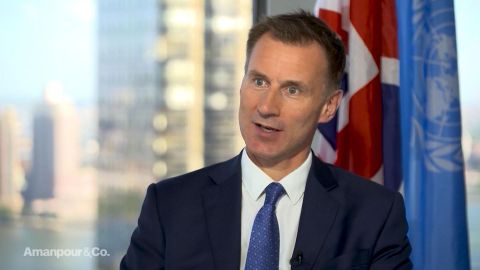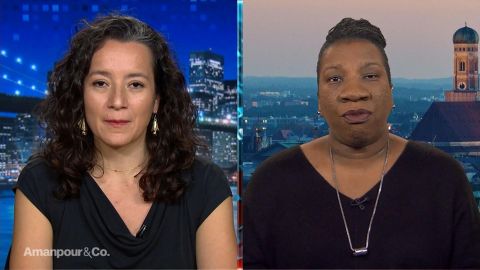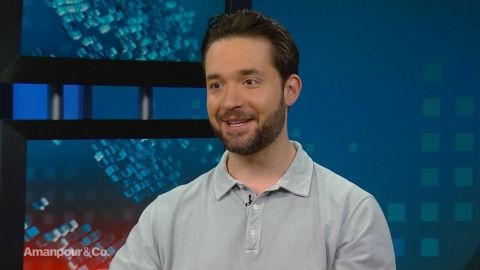Read Transcript EXPAND
ANA MARIA ARCHILA: I shared for the first-time last week that — in public, I had shared it with a few friends and with my mother when I was around 16 or so, that I had been sexually abused as a child, as a five-year-old, by a young man who was 15 at the time. And I knew even as a five-year-old that that moment — that — if I shared these with my parents, they would feel pain. I didn’t share it with them. I was confused and ashamed and thought maybe it was my fault. But it was really my desire to not cause pain to my parents that motivated me to hold that information. And I think that’s why — it’s one of the many reasons why so many survivors choose not to share. Because when you share, it’s not just painful for you, it’s painful for the people who love you.
CHRISTIANE AMANPOUR: Tarana, you’re listening to this unfold. Of course, you yourself were in the hearings when Christine Blasey Ford and Kavanaugh testified. Just — because you’ve been at this for so long and you founded this movement back in 2006, I just want to know what you thought and how you assess that moment when Ana Maria and Maria confronted Flake and — but it did actually cause him to push that pause button.
TARANA BURKE: That moment was gripping. I think there’s no survivor of sexual violence who could watch that without tears and without such a feeling, one of pride. And I just want to say thank you so much, while I have you here in earshot for what the both of you did. I was so brave and it was so vulnerable. And on the one hand watching it, my heart goes out to survivors who continuously have to put ourselves on the line and put our stories out there and be vulnerable in order for people to see us as fully human beings and to see us as people who deserve to have — to be believed and to be heard and to be seen. And so, in that part is painful. But on the other hand, to know that it stood for something, it meant something and that it — there was an end result that was what we were looking for. So, you know, I see this happen so many times. Sexual — survivors of sexual violence have to carry our burden around with us and we have to show people evidence in our pain of how serious this issue is. They don’t make other people do that, they don’t make survivors of other crimes do that. But survivors of sexual violence continuously have to carry this burden around like it’s ours to bear and it’s not our burden to bear.
About This Episode EXPAND
Christiane Amanpour interviews Tarana Burke, founder of MeToo & Ana Maria Archila who confronted U.S. Senate Republican Jeff Flake; and Jeremy Hunt, British Foreign Secretary. Hari Sreenivasan interviews Alexis Ohanian, Co-founder of Initialized Capital.
LEARN MORE


